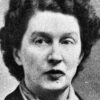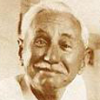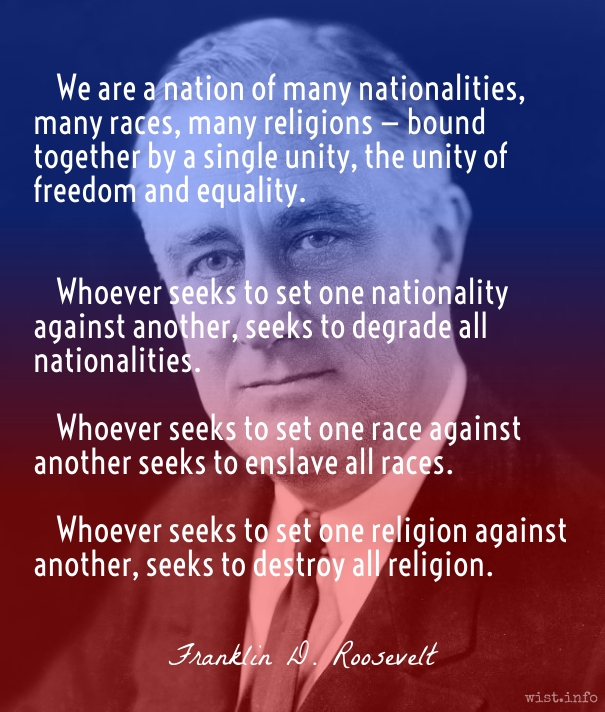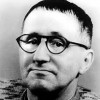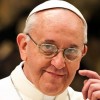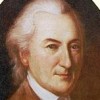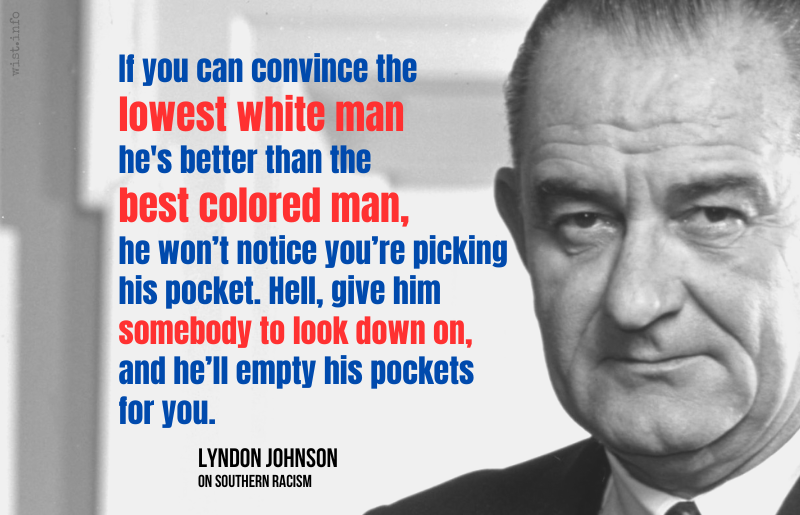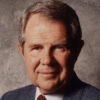Why, if all the rich men in the world divided up their money amongst themselves, there wouldn’t be enough to go round!
Christina Stead (1902-1983) Australian writer
House of All Nations, sc. 12 “The Revolution” [Jules] (1938)
(Source)
Pooh-poohing the idea that confiscating wealth from the rich would provide enough money to the poor. The line is also included in the "Credo" at the beginning of the novel, attributed to the character, Jules Bertillon.
Quotations about:
division
Note not all quotations have been tagged, so Search may find additional quotes on this topic.
From my point of view, no label, no slogan, no party, no skin color, and indeed no religion is more important than the human being.
James Baldwin (1924-1987) American novelist, playwright, activist
Comment (1963)
(Source)
Included in Karen Thorsen, et al., James Baldwin: The Price of the Ticket, film (1989), a film biography of Baldwin using extensive archival film of the author (the project was started before Baldwin's death, and Baldwin intended to direct it).
I have found, without good citation, two broader contexts for the quotation. First:
The very dangerous effort one has got to make, according to me, is to deal with other people as though they were simply human beings. To remember that no matter what the details of their lives may be like, or how different they may seem to you superficially, or what the social pressures outside of what the psychological pressures are within, to deal with this other human being precisely as though he or she was here for the first and only time. To deal with them in some way that you’d like them to deal with you, no matter the price. From my point of view, no label, no slogan, no party, no skin color, and indeed no religion, is more important than the human being. The human core in everybody, which liberates you and me, because when the chips are down this is all there is -- there isn’t anything else.
The second looks to be a paraphrase of the above:
We must all make the effort to deal with all people simply as human beings. From my point of view, no label, no slogan, no party, no skin color, and indeed no religion is more important than the human being. When the chips are down, this is all that matters.
Without better documentation, I cannot confirm either version.
I have often wondered, that persons who make a boast of professing the Christian religion, namely, love, joy, peace, temperance, and charity to all men, should quarrel with such rancorous animosity, and display daily towards one another such bitter hatred, that this, rather than the virtues they claim, is the readiest criterion of their faith.
Baruch Spinoza (1632-1677) Dutch philosopher
Theological-Political Treatise [Tractatus Theologico-Politicus], Part 1, Preface, sec. 23 (1670)
(Source)
It is the speculations of crazy theologists which have made a Babel of a religion the most moral and sublime ever preached to man, and calculated to heal, and not to create differences. These religious animosities I impute to those who call themselves his ministers, and who engraft their casuistries on the stock of his simple precepts. I am sometimes more angry with them than is authorised by the blessed charities which he preached.
Thomas Jefferson (1743-1826) American political philosopher, polymath, statesman, US President (1801-09)
Letter (1819-06-25) to Ezra Styles Ely
(Source)
Nay, we have heard it said that there is not a quaker or a baptist, a presbyterian or an episcopalian, a catholic or a protestant in heaven: that, on entering that gate, we leave those badges of schism behind, and find ourselves united in those principles only in which god has united us all. Let us not be uneasy then about the different roads we may pursue, as believing them the shortest, to that our last abode: but, following the guidance of a good conscience, let us be happy in the hope that, by these different paths, we shall all meet in the end. and that you and I may there meet and embrace is my earnest prayer: and with this assurance I salute you with brotherly esteem and respect.
Thomas Jefferson (1743-1826) American political philosopher, polymath, statesman, US President (1801-09)
Letter (1814-09-26) to Miles King
(Source)
Where he had "heard it said" might be an 1813 letter from John Adams.
But if war continues to absorb and dominate it, or if the itch to rule the world requires large military establishment and appropriation, the freedom of democracy may one by one succumb to the discipline of arms and strife. If race or class war divides us into hostile camps, changing political argument into blind hate, one side or the other may overturn the hustings with the rule of the sword. If our economy of freedom fails to distribute wealth as ably as it has created it, the road to dictatorship will be open to any man who can persuasively promise security to all; and a martial government, under whatever charming phrases, will engulf the democratic world.
William James (Will) Durant (1885-1981) American historian, teacher, philosopher
The Lessons of History, ch. 10 (1968) [with Ariel Durant]
(Source)
I can consequently assure you that no kingdom has ever existed with as many civil wars as occur in the kingdom of Christ.
[Aussi puis-je t’assurer qu’il n’y a jamais eu de royaume où il y ait eu tant de guerres civiles que dans celui de Christ.]Charles-Lewis de Secondat, Baron de Montesquieu (1689-1755) French political philosopher
Persian Letters [Lettres Persanes], Letter 29, Rica to Ibben (1721) [tr. Mauldon (2008)]
(Source)
(Source (French)). Alternate translations:
And accordingly I can assure thee there never was a Kingdom that had so many Civil Wars in it, as that of Christ.
[tr. Ozell (1736), Letter 27]
I can also affirm to thee that there never was a kingdom where there has been so many civil wars as in that of Christ.
[tr. Floyd (1762)]
I can also assure you that there never was a realm in which so many civil wars have broken out, as in the kingdom of Christ.
[tr. Davidson (1891)]
Consequently, I am able to assure you that there never has been a kingdom in which there have been so many civil wars as in that of Christ.
[tr. Betts (1897)]
I can also assure you that there has never been a realm so prone to civil wars as that of Christ.
[tr. Healy (1964)]
I assure you that no countries have had as many civil wars as those in the realm of Christ.
[tr. MacKenzie (2014)]
I had been religiously educated as a Presbyterian; and tho’ some of the Dogmas of that Persuasion, such as the Eternal Decrees of God, Election, Reprobation, &c. appear’d to me unintelligible, others doubtful, & I early absented myself from the Public Assemblies of the Sect, Sunday being my Studying-Day, I never was without some religious Principles; I never doubted, for instance, the Existence of the Deity, that he made the World, & govern’d it by his Providence; that the most acceptable Service of God was the doing Good to Man; that our Souls are immortal; and that all Crime will be punished & Virtue rewarded either here or hereafter; these I esteem’d the Essentials of every Religion, and being to be found in all the Religions we had in our Country I respected them all, tho’ with different degrees of Respect as I found them more or less mix’d with other Articles which without any Tendency to inspire, promote or confirm Morality, serv’d principally to divide us & make us unfriendly to one another.
Benjamin Franklin (1706-1790) American statesman, scientist, philosopher, aphorist
Autobiography, Part 2 (1785)
(Source)
What we need in the United States is not division; what we need in the United States is not hatred; what we need in the United States is not violence or lawlessness; but love and wisdom, and compassion toward one another, and a feeling of justice toward those who still suffer within our country, whether they be white or they be black.
Robert Francis Kennedy (1925-1968) American politician
Statement on the Assassination of Martin Luther King, Jr., Indianapolis (1968-04-04)
(Source)
England and America are two countries separated by the same language.
George Bernard Shaw (1856-1950) British playwright and critic
(Attributed)
Variants:Possibly a misattribution from Oscar Wilde in 1887: "We have really everything in common with America nowadays, except, of course, language."
- "England and America are two peoples separated by a common language."
- "England and America are two countries separated by one language."
- "The British and the Americans are two great peoples divided by a common tongue."
One of the first attributions to Shaw, without source, was in Reader's Digest (Nov 1942). It also shows up in other articles at the time, referenced as a remark by Shaw but without any actual citation. The phrase is not found in Shaw's published writing.
For further discussion of the quote's origins: Britain and America Are Two Nations Divided by a Common Language – Quote Investigator.
The history of the Jews also shows that oppression and persecution are far more efficacious in binding a nation together than community of interest and national prosperity. Increase of wealth divides rather than unites a people; but suffering shared in common binds it together with hoops of steel.
What are the marks of a sick culture? It is a bad sign when the people of a country stop identifying themselves with the country and start identifying with a group. A racial group. Or a religion. Or a language. Anything, as long as it isn’t the whole population. A very bad sign. Particularism. It was once considered a Spanish vice but any country can fall sick with it.
We are a nation of many nationalities, many races, many religions — bound together by a single unity, the unity of freedom and equality. Whoever seeks to set one nationality against another, seeks to degrade all nationalities. Whoever seeks to set one race against another seeks to enslave all races. Whoever seeks to set one religion against another, seeks to destroy all religion.
Divide and rule, the politician cries;
Unite and lead, is watchword of the wise.[Entzwei’ und gebiete! Tüchtig Wort;
Verein’ und leite! Beßrer Hort!]Johann Wolfgang von Goethe (1749-1832) German poet, statesman, scientist
Sprüche in Reimen (1819)
(Source)
Alt. trans.:
- "Divide and command, a wise maxim; / Unite and guide, a better."
- "Divide and rule, a capital motto! / Unite and lead, a better one!"
Our errors and our controversies, in the sphere of morality, arise sometimes from looking on men as though they could be altogether bad, or altogether good.
[Nos erreurs et nos divisions dans la morale viennent quelquefois de ce que nous considérons les hommes comme s’ils pouvaient être tout à fait vicieux ou tout à fait bons.]
Luc de Clapiers, Marquis de Vauvenargues (1715-1747) French moralist, essayist, soldier
Reflections and Maxims [Réflexions et maximes], # 31 (1746) [tr. Stevens (1940)]
(Source)
It always pains me greatly to discover how some Christian communities, and even consecrated persons, can tolerate different forms of enmity, division, calumny, defamation, vendetta, jealousy and the desire to impose certain ideas at all costs, even to persecutions which appear as veritable witch hunts. Whom are we going to evangelize if this is the way we act?
Francis I (b. 1936) Argentinian Catholic Pope (2013- ) [b. Jorge Mario Bergoglio]
Evangelii Gaudium, sec. 100 (24 Nov 2013)
(Source)
There is not a liberal America and a conservative America — there is the United States of America. There is not a black America and a white America and Latino America and Asian America — there’s the United States of America.
Barack Obama (b. 1961) American politician, US President (2009-2017)
Keynote speech, Democratic National Convention (26 Jul 2004)
(Source)
For harmony makes small states great, while discord undermines the mightiest empires.
[Nam concordia parvae res crescunt, discordia maxumae dilabuntur.]
Then join Hand in Hand, brave Americans all,
By uniting we stand, by dividing we fall.John Dickinson (1732-1808) American solicitor, politician, writer
“A Song for American Freedom” (“The Liberty Song”), Boston Gazette (18 Jul 1768)
See Aesop.
United we stand, divided we fall.
Aesop (620?-560? BC) Legendary Greek storyteller
Fables [Aesopica], “The Four Oxen and the Lion” (6th C BC) [tr. Jacobs (1894)]
(Source)
If you can convince the lowest white man he’s better than the best colored man, he won’t notice you’re picking his pocket. Hell, give him somebody to look down on, and he’ll empty his pockets for you.
Lyndon B. Johnson (1908-1973) American politician, educator, US President (1963-69)
Comment (1960)
(Source)
Discussing racist graffiti in Tennessee, seen earlier in the day. Recalled in Bill Moyers, "What a Real President Was Like," Washington Post (1988-11-13).
More discussion here: Did Lyndon B. Johnson Say This About The 'Lowest White Man' and 'Best Colored Man'? | Snopes.com.
One of the benefits that oppression confers upon the oppressors is that the most humble among them is made to feel superior; thus, a poor white in the South can console himself with the thought that he is not a “dirty nigger” — and the more prosperous whites cleverly exploit this pride. Similarly, the most mediocre of males feels himself a demigod as compared with women.
Simone de Beauvoir (1908-1986) French author, existentialist philosopher, feminist theorist
The Second Sex, Introduction (1950) [tr. Parshley (1952)]
See Johnson.
I believe that that community is already in process of dissolution where each man begins to eye his neighbor as a possible enemy, where non-conformity with the accepted creed, political as well as religious, is a mark of disaffection; where denunciation, without specification or backing, takes the place of evidence; where orthodoxy chokes freedom of dissent; where faith in the eventual supremacy of reason has become so timid that we are not enter our convictions into the open list, to win or lose. Such fears as these are a solvent which can eat out the cement that binds the stones together; they may in the end subject us to a despotism as evil as any that we dread; and they can be allayed only in so far as we refuse to proceed on suspicion, and trust one another until we have tangible ground for misgiving,
Learned Hand (1872-1961) American jurist
“A Plea for the Open Mind and Free Discussion,” speech, University of the State of New York, Albany (1952-10-24)
(Source)
You say you’re supposed to be nice to the Episcopalians and the Presbyterians and the Methodists and this, that, and the other thing. Nonsense, I don’t have to be nice to the spirit of the Antichrist.
Pat Robertson (1930-2023) American politician and televangelist
The 700 Club broadcast (1991-01-14)
(Source)
The earliest documentation of this quote I can find is in David Cantor, The Religious Right: The Assault on Tolerance & Pluralism in America, Sec. 1, ch. 1 (1994).

